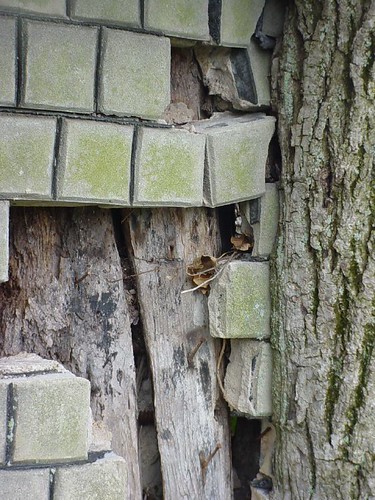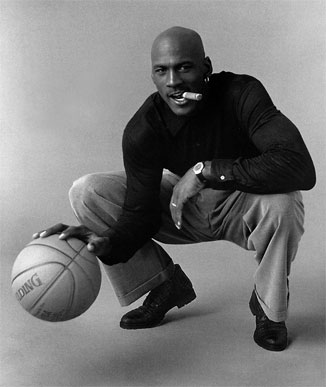
learning01
02-23 03:06 PM
http://www.washingtonpost.com/wp-dyn/content/article/2006/02/22/AR2006022202446_pf.html
Scientist's Visa Denial Sparks Outrage in India
By Shankar Vedantam
Washington Post Staff Writer
Thursday, February 23, 2006; A01
A decision two weeks ago by a U.S. consulate in India to refuse a visa to a prominent Indian scientist has triggered heated protests in that country and set off a major diplomatic flap on the eve of President Bush's first visit to India.
The incident has also caused embarrassment at the highest reaches of the American scientific establishment, which has worked to get the State Department to issue a visa to Goverdhan Mehta, who said the U.S. consulate in the south Indian city of Chennai told him that his expertise in chemistry was deemed a threat.
In the face of outrage in India, the U.S. Embassy in New Delhi issued a highly unusual statement of regret, and yesterday the State Department said officials are reaching out to the scientist to resolve his case.
"It is very strange logic," said Mehta, reached at his home in Bangalore early this morning India time. "Someone is insulted and hurt and you ask him to come back a second round."
The consulate told Mehta "you have been denied a visa" and invited him to submit additional information, according to an official at the National Academy of Sciences who saw a copy of the document. Mehta said in a written account obtained by The Washington Post that he was humiliated, accused of "hiding things" and being dishonest, and told that his work is dangerous because of its potential applications in chemical warfare.
Mehta denied that his work has anything to do with weapons. He said that he would provide his passport if a visa were issued, but that he would do nothing further to obtain the document: "If they don't want to give me a visa, so be it."
The scientist told Indian newspapers that his dealing with the U.S. consulate was "the most degrading experience of my life." Mehta is president of the International Council for Science, a Paris-based organization comprising the national scientific academies of a number of countries. The council advocates that scientists should have free access to one another.
Visa rejections or delays for foreign academics after the Sept. 11, 2001, attacks have led to widespread complaints by U.S universities and scientific organizations, but the new incident comes when things are improving, said Wendy White, director of the Board of International Scientific Organizations. The board was set up by the National Academy of Sciences and has helped about 3,000 scientists affected by the new policies.
"This leaves a terrible impression of the United States," said White, who has seen a copy of the consulate's form letter to Mehta. In an interview yesterday, she added that top scientists had worked with senior State Department officials to reverse the decision before Bush's visit next week. "We want people to know the U.S. is an open and welcoming country."
Mehta's case has especially angered Indians because he was a director of the Indian Institute of Science and is a science adviser to India's prime minister. He has visited the United States "dozens of times," he said, and the University of Florida in Gainesville had invited him to lecture at an international conference.
State Department spokesman Justin Higgins denied yesterday that the United States had rejected Mehta's visa and said the consulate had merely followed standard procedure in dealing with applicants with certain kinds of scientific expertise.
In his written account, the scientist said that after traveling 200 miles, waiting three hours with his wife for an interview and being accused of deception, he was outraged when his accounts of his research were questioned and he was told he needed to fill out a detailed questionnaire.
"I indicated that I have no desire to subject myself to any further humiliation and asked that our passports be returned forthwith," he wrote. The consular official, Mehta added, "stamped the passports to indicate visa refusal and returned them."
Higgins declined to address why the U.S. Embassy in New Delhi had taken the unusual step of saying it "regrets" that Mehta was "upset by the visa interview process."
In its statement, the embassy said: "At the United States mission in India, and to varying degrees at every U.S. mission worldwide, certain cases involving high technology issues are among those that require review before consular officers in the field are authorized to issue a visa."
White said that issuing a visa would solve the immediate problem, but that it would be more difficult to undo the damage caused by the dispute. Mehta is a high-profile example of the hurdles imposed by the new visa procedures. They require all applicants to appear in person for interviews that are done in only a few locations in large countries such as India, White said.
"If you tell an American, 'If you want a visa to go to India, you have to go to Dallas, Chicago, L.A. or New York, and while you are there, you are going to be fingerprinted, photographed and asked about everything you have done in your research for the last 40 years,' we would find this procedure untenable as Americans," she said.
Mehta said in his written account that he had been invited by the University of Florida, where he has previously been a distinguished visiting professor. White said she expected the International Council for Science, also known as the ICSU, to issue a statement today about the case involving its president.
White and William Wulf, president of the National Academy of Engineering, acknowledged that young American consular officers in foreign countries have been under tremendous pressure since the Sept. 11 attacks.
"Making the wrong decision would be career-ending, so they play it safe, not really understanding the macroscopic implications of their decision," Wulf said. "Denying a visa to the president of ICSU is probably as dumb as you can get. This is not the way we can make friends."
�*2006*The Washington Post Company
Scientist's Visa Denial Sparks Outrage in India
By Shankar Vedantam
Washington Post Staff Writer
Thursday, February 23, 2006; A01
A decision two weeks ago by a U.S. consulate in India to refuse a visa to a prominent Indian scientist has triggered heated protests in that country and set off a major diplomatic flap on the eve of President Bush's first visit to India.
The incident has also caused embarrassment at the highest reaches of the American scientific establishment, which has worked to get the State Department to issue a visa to Goverdhan Mehta, who said the U.S. consulate in the south Indian city of Chennai told him that his expertise in chemistry was deemed a threat.
In the face of outrage in India, the U.S. Embassy in New Delhi issued a highly unusual statement of regret, and yesterday the State Department said officials are reaching out to the scientist to resolve his case.
"It is very strange logic," said Mehta, reached at his home in Bangalore early this morning India time. "Someone is insulted and hurt and you ask him to come back a second round."
The consulate told Mehta "you have been denied a visa" and invited him to submit additional information, according to an official at the National Academy of Sciences who saw a copy of the document. Mehta said in a written account obtained by The Washington Post that he was humiliated, accused of "hiding things" and being dishonest, and told that his work is dangerous because of its potential applications in chemical warfare.
Mehta denied that his work has anything to do with weapons. He said that he would provide his passport if a visa were issued, but that he would do nothing further to obtain the document: "If they don't want to give me a visa, so be it."
The scientist told Indian newspapers that his dealing with the U.S. consulate was "the most degrading experience of my life." Mehta is president of the International Council for Science, a Paris-based organization comprising the national scientific academies of a number of countries. The council advocates that scientists should have free access to one another.
Visa rejections or delays for foreign academics after the Sept. 11, 2001, attacks have led to widespread complaints by U.S universities and scientific organizations, but the new incident comes when things are improving, said Wendy White, director of the Board of International Scientific Organizations. The board was set up by the National Academy of Sciences and has helped about 3,000 scientists affected by the new policies.
"This leaves a terrible impression of the United States," said White, who has seen a copy of the consulate's form letter to Mehta. In an interview yesterday, she added that top scientists had worked with senior State Department officials to reverse the decision before Bush's visit next week. "We want people to know the U.S. is an open and welcoming country."
Mehta's case has especially angered Indians because he was a director of the Indian Institute of Science and is a science adviser to India's prime minister. He has visited the United States "dozens of times," he said, and the University of Florida in Gainesville had invited him to lecture at an international conference.
State Department spokesman Justin Higgins denied yesterday that the United States had rejected Mehta's visa and said the consulate had merely followed standard procedure in dealing with applicants with certain kinds of scientific expertise.
In his written account, the scientist said that after traveling 200 miles, waiting three hours with his wife for an interview and being accused of deception, he was outraged when his accounts of his research were questioned and he was told he needed to fill out a detailed questionnaire.
"I indicated that I have no desire to subject myself to any further humiliation and asked that our passports be returned forthwith," he wrote. The consular official, Mehta added, "stamped the passports to indicate visa refusal and returned them."
Higgins declined to address why the U.S. Embassy in New Delhi had taken the unusual step of saying it "regrets" that Mehta was "upset by the visa interview process."
In its statement, the embassy said: "At the United States mission in India, and to varying degrees at every U.S. mission worldwide, certain cases involving high technology issues are among those that require review before consular officers in the field are authorized to issue a visa."
White said that issuing a visa would solve the immediate problem, but that it would be more difficult to undo the damage caused by the dispute. Mehta is a high-profile example of the hurdles imposed by the new visa procedures. They require all applicants to appear in person for interviews that are done in only a few locations in large countries such as India, White said.
"If you tell an American, 'If you want a visa to go to India, you have to go to Dallas, Chicago, L.A. or New York, and while you are there, you are going to be fingerprinted, photographed and asked about everything you have done in your research for the last 40 years,' we would find this procedure untenable as Americans," she said.
Mehta said in his written account that he had been invited by the University of Florida, where he has previously been a distinguished visiting professor. White said she expected the International Council for Science, also known as the ICSU, to issue a statement today about the case involving its president.
White and William Wulf, president of the National Academy of Engineering, acknowledged that young American consular officers in foreign countries have been under tremendous pressure since the Sept. 11 attacks.
"Making the wrong decision would be career-ending, so they play it safe, not really understanding the macroscopic implications of their decision," Wulf said. "Denying a visa to the president of ICSU is probably as dumb as you can get. This is not the way we can make friends."
�*2006*The Washington Post Company
wallpaper create a positive attitude

snathan
03-24 11:46 AM
Even I am in the current situation. Please call me 6166342617 so we can discuss or email
[email]anand622@yahoo.com I have spoken to a couple lawyers so we can exchange options
Why dont you share your attoney's input here...It will be very useful for others in the same situatuion.
[email]anand622@yahoo.com I have spoken to a couple lawyers so we can exchange options
Why dont you share your attoney's input here...It will be very useful for others in the same situatuion.

blondhenge
08-31 09:15 AM
I had asked this question to the immigration lawyer at IV. She said that if you are working for the same company at their offices aboard & go for Consular Processing ( it is the only option as you can not go 485 route) it should be just fine. However, if the company that you are working for when you are abroad and the company that did your GC are not the same thenit is almost impossible to prove that the job exists when you arrive in USA after CP.
That is why you need a new employment letter from your US employer to bring to the consular interview. The letter is the proof that the job exists for when you arrive in the US.
However, if the individual has no intention of working at the US company upon arrivial, or if they do not want to hire him back (and thus not give him the letter), he will not be approved at the consulate.
That is why you need a new employment letter from your US employer to bring to the consular interview. The letter is the proof that the job exists for when you arrive in the US.
However, if the individual has no intention of working at the US company upon arrivial, or if they do not want to hire him back (and thus not give him the letter), he will not be approved at the consulate.
2011 Subscribe to Lucy MacDonald#39;s positive attitude quotes here.

vivekjay
03-05 04:20 PM
This is a classic example of election year posturing where republicans want to look tough on immigration. This bill will head straight down the trash.
more...

desi3933
02-14 08:31 AM
There is no rule/law that'll help you get a green card if you stay here for 10 years or even 50 years.
>> even 50 years
Incorrect.
Refer to my previous post on this.
.
>> even 50 years
Incorrect.
Refer to my previous post on this.
.

langagadu
05-02 08:42 AM
If I were you, I would explore around the Legal Status from last entry.
ebizash may be right it won't apply if you enter on AP, still worth exploring that area.
Thanks for information. To answer I applied my H1b on June 1, 2002.
My school finished on June 11, 2002. I did apply H1 during school but stupid me did not apply OPT. Then I get approve H1b 7 months later, more like 7 months and 20 days almost 8 months then working. I am out of status more 6 months which very bad.
I called many lawyers, some do not want to help a few will write letter ( 1 letter 600.00)
some said I have good chance others said unknown.
I am still out of status even I applied H1b and waiting more 180 days? I think I am, need good reason to put on letter.
ebizash may be right it won't apply if you enter on AP, still worth exploring that area.
Thanks for information. To answer I applied my H1b on June 1, 2002.
My school finished on June 11, 2002. I did apply H1 during school but stupid me did not apply OPT. Then I get approve H1b 7 months later, more like 7 months and 20 days almost 8 months then working. I am out of status more 6 months which very bad.
I called many lawyers, some do not want to help a few will write letter ( 1 letter 600.00)
some said I have good chance others said unknown.
I am still out of status even I applied H1b and waiting more 180 days? I think I am, need good reason to put on letter.
more...

sai_srinivas
05-31 08:09 AM
Can someone provide their experience/opinion on this?
2010 Positive Attitude Magic

Britsabroad
December 3rd, 2008, 08:00 PM
Ed - Dang. Wish I hadnt chickened out! I could have handled what you went through... Ordred thru amazon (d300 and 24-70 2.8) It will be interesting to compare notes over time...
Owen
Owen
more...

illinois_alum
07-11 01:55 PM
Are you sure that this was signed by Emilio Gonzalez and not some other Gonzalez?
I would think the last name Gonzalez would also be like the last name KIM for Koreans..there could be hundreds of Gonzalez at USCIS!
I would think the last name Gonzalez would also be like the last name KIM for Koreans..there could be hundreds of Gonzalez at USCIS!
hair quotes about attitude. quotes
RamBihari
02-16 03:59 PM
If each state in India were a country
There would have been no backlog.
Disagree. Andhra Pradesh would still have a long backlog.
There would have been no backlog.
Disagree. Andhra Pradesh would still have a long backlog.
more...

va_dude
05-07 04:05 PM
Yes i did see a LUD on the uscis website for my 485 a couple of weeks back.
So i guess the LUD stuff still works irrespective of the "chimps" using "champs".
So i guess the LUD stuff still works irrespective of the "chimps" using "champs".
hot Courage Quotes |

GCBoy786
08-17 11:57 AM
Thanks for the info.
Do I need to the pay the application fee of $340 again?
Do I need to send all documents(the docs that were sent while applying for renewal) again for the replacement EAD application?
Thanks.
Do I need to the pay the application fee of $340 again?
Do I need to send all documents(the docs that were sent while applying for renewal) again for the replacement EAD application?
Thanks.
more...
house Positive Thinking Motivational

guchi472000
02-12 10:58 AM
I am in for Gandhigiri.:)
tattoo a more positive attitude.

binadh
03-05 02:27 PM
You can stand in the Home Depot parking lot with a jumpsuit and a bandana if you want to make some Hard Earned money............If not, stop asking stupid questions in this forum. You should know that when you get your freaking H4 visa.
Is there anything i can do on H4 visa??
Is there anything i can do on H4 visa??
more...
pictures Funny positive attitude quotes

SSSarkar
06-25 11:42 AM
My company is paying all the cost except medical exam and photos.
dresses a more positive attitude

legalrights
08-19 12:27 AM
1) If one files I-140, I-485 and I-765 concurrently with Labor substitution, can he get EAD before the approval of I-140?
******Yes. Mine is a Labor substitution case and I got my EAD within Two months
2) what's the earliest time one can change job and still not loose getting GC while it is in process? Is it after getting EAD or does he has to wait for I-14 to get approved or have I-140 to be pening for more than 6 months?
*******It is not very clear even in the AC21 law. But the safest thing is wait for I-140 approval and 180 days after I-1485 Notice date. Suppose your I-140 is not approved on or before 180 days, then wait. If it is getting approved on 190th day, you can use AC21 on 191th day, from your I-485 Notice date. (180 days from the Receipt date will be fine. But just for extra precaution, use AC21 rule after 180 days from Notice date, which comes later)
******Yes. Mine is a Labor substitution case and I got my EAD within Two months
2) what's the earliest time one can change job and still not loose getting GC while it is in process? Is it after getting EAD or does he has to wait for I-14 to get approved or have I-140 to be pening for more than 6 months?
*******It is not very clear even in the AC21 law. But the safest thing is wait for I-140 approval and 180 days after I-1485 Notice date. Suppose your I-140 is not approved on or before 180 days, then wait. If it is getting approved on 190th day, you can use AC21 on 191th day, from your I-485 Notice date. (180 days from the Receipt date will be fine. But just for extra precaution, use AC21 rule after 180 days from Notice date, which comes later)
more...
makeup Positive Attitude Quotes

ds37
02-04 03:31 PM
Hi
I think THey can not use spillover untill last quarter, as all the math is done for the whole yearand than applied monthly on a pro-rata basis. I n theory if they spill over each quarter and a huge (unrealistic but theoritically possible) demand devlopes in the last quarter they will be doomed so wait for the last quarter and see the magic(if any).
Thanks
DS
I think THey can not use spillover untill last quarter, as all the math is done for the whole yearand than applied monthly on a pro-rata basis. I n theory if they spill over each quarter and a huge (unrealistic but theoritically possible) demand devlopes in the last quarter they will be doomed so wait for the last quarter and see the magic(if any).
Thanks
DS
girlfriend Positive attitude quotations

psychman
11-11 07:00 PM
This is almost identical to the Modifying a Databound Collection case: http://www.kirupa.com/blend_wpf/modifying_databound_collection_pg1.htm
Thanks again Kirupa. I went back over the above post and it helped me answere some of the questions I had, but I do have one more if you don't mind. I have this little project almost wrapped up now. When complete the app will do the following:
-Imports Metadata.xml file generated by Deep Zoom Composer
-On import it will populate the databound image and text boxes with the original data
-On import it will also add four new "tag" elements to the original xml file
-The user will be able to navigate all of the original images and coresponding tags (your MIX08 presentation helped me create the navigation piece ((thanks!))
-The user can add new "tag" data to any of the old and new fields and the new data will overwrite the original xml file when the "save" button is clicked.
I have everything working great. Now I just need to figure out how to take my new "tag" elements and add them into all of the nodes on import. I know how to do this to one node, but I am not sure how to add the new elements to every "Image" node in the file. Here is the code I am using to make this work for the first node:
XmlDocument doc = new XmlDocument();
doc.Load (variable pointing to xml file);
XmlDocumentFragment docFrag = doc.CreateDocumentFragment();
docFrag.InnerXml = "<testItem> test </testItem>";
doc.DocumentElement.FirstChild.NextSibling.AppendC hild(docFrag);
doc.Save("Metadata.xml");
Thanks again Kirupa. I went back over the above post and it helped me answere some of the questions I had, but I do have one more if you don't mind. I have this little project almost wrapped up now. When complete the app will do the following:
-Imports Metadata.xml file generated by Deep Zoom Composer
-On import it will populate the databound image and text boxes with the original data
-On import it will also add four new "tag" elements to the original xml file
-The user will be able to navigate all of the original images and coresponding tags (your MIX08 presentation helped me create the navigation piece ((thanks!))
-The user can add new "tag" data to any of the old and new fields and the new data will overwrite the original xml file when the "save" button is clicked.
I have everything working great. Now I just need to figure out how to take my new "tag" elements and add them into all of the nodes on import. I know how to do this to one node, but I am not sure how to add the new elements to every "Image" node in the file. Here is the code I am using to make this work for the first node:
XmlDocument doc = new XmlDocument();
doc.Load (variable pointing to xml file);
XmlDocumentFragment docFrag = doc.CreateDocumentFragment();
docFrag.InnerXml = "<testItem> test </testItem>";
doc.DocumentElement.FirstChild.NextSibling.AppendC hild(docFrag);
doc.Save("Metadata.xml");
hairstyles Positive Attitude Quotes:

GCaspirations
10-04 10:53 PM
I tried cannot update the poll, but if AUG guys get it then Sep guys will get it as well...
I understand that, if people from Aug have not received the FP notice then how the Sept people will get it. But as you know USCIS is unpredictable and I was looking for how many people are stuck like us.
I wanted to track this and I opened the thread too, but it was closed by the administrators.
I understand that, if people from Aug have not received the FP notice then how the Sept people will get it. But as you know USCIS is unpredictable and I was looking for how many people are stuck like us.
I wanted to track this and I opened the thread too, but it was closed by the administrators.
new2gc
02-16 10:47 AM
Time for paid membership on this website...at least $5 a month..else, we will these see kind of non-sense discussion threads...waste of time and resources (Including this message)
PD073102VA
03-26 09:43 PM
One thing is for sure, regardless of the intent of the law to facilitate immigration of people with graduate degrees in STEM, USCIS will make sure to get into the weeds of proving or disproving that either the degree is not really technical and/or the field is not related to the degree.
It is so easy to get into fields of enigneering and technology that are not directly related to your "field of graduate studies" but you just happened ending up in that field by virtue of opportunities that came across in your professional life. Such fields could be classified as "unrelated" by USCIS even though, execution of job in that field may not be possible without gaining knowledge in the "actual field of study".
Lawmakers make laws to make things easier for people and organizations like DOL and USCIS leave no stone unturned to use the very same laws to make people's lives hell.
It is so easy to get into fields of enigneering and technology that are not directly related to your "field of graduate studies" but you just happened ending up in that field by virtue of opportunities that came across in your professional life. Such fields could be classified as "unrelated" by USCIS even though, execution of job in that field may not be possible without gaining knowledge in the "actual field of study".
Lawmakers make laws to make things easier for people and organizations like DOL and USCIS leave no stone unturned to use the very same laws to make people's lives hell.
